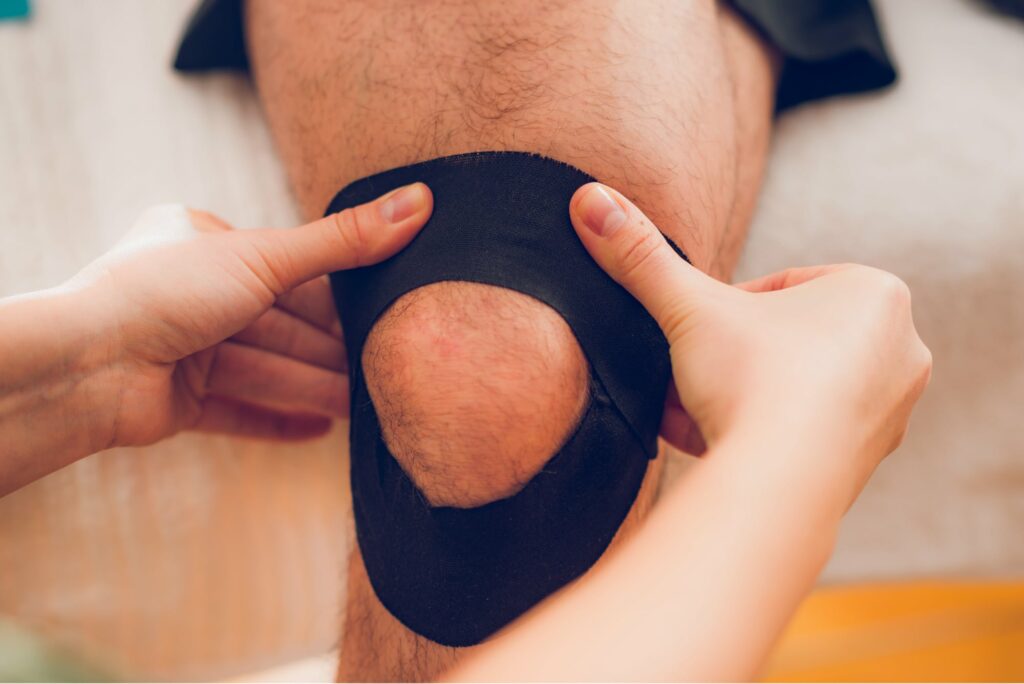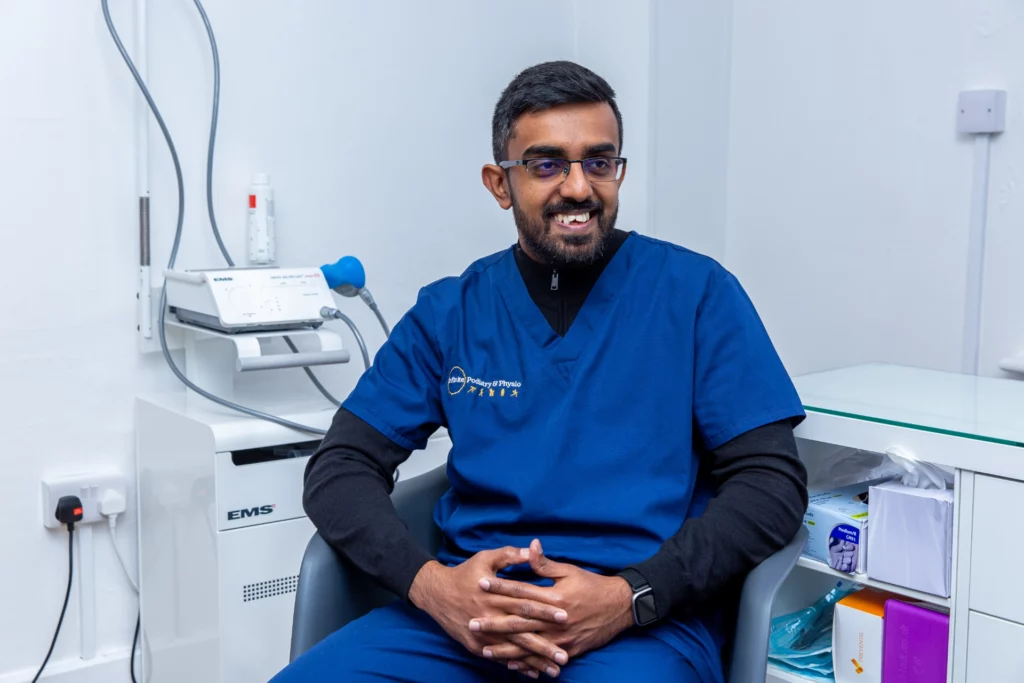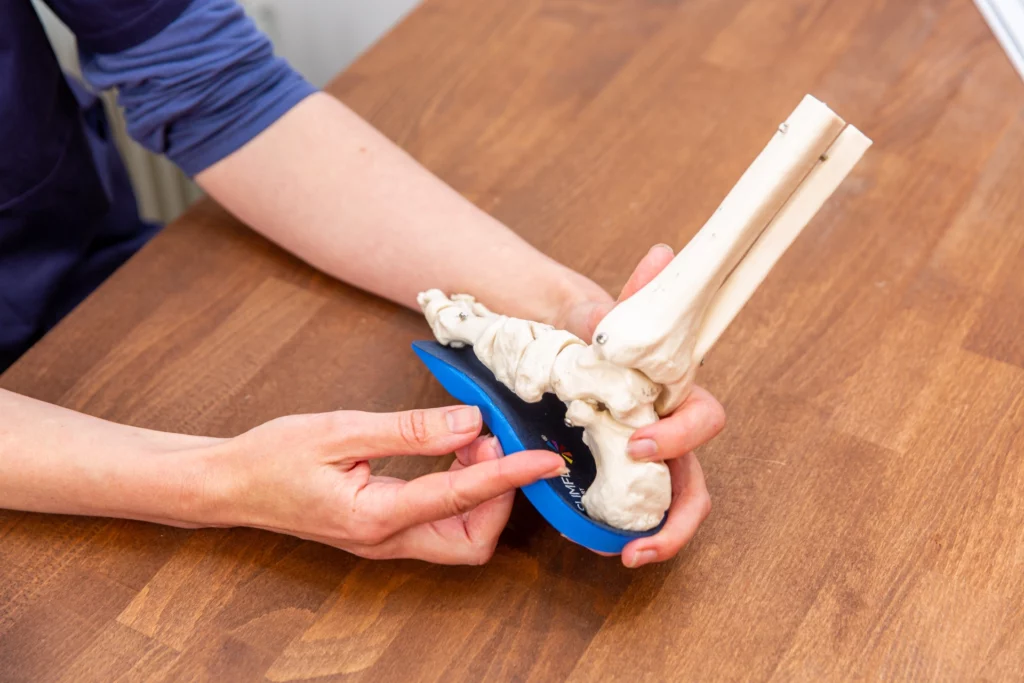
Introduction to Knee Pain
When it comes to knee pain, our patients broadly fall into one of two categories;
- Those experiencing pain associated with activities of daily living.
- Those experiencing pain secondary to sports activity
Whether you want chase after the grandchildren pain-free, or compete in that ultramarathon you’ve been training for, we target our rehabilitation plans to your individual needs.
Our Physios are experienced in assessing and managing knee pain and will complete a comprehensive assessment of your history and symptoms in order to design an effective rehabilitation plan and ensure a rapid return to pain free activity.
Our Physio’s work in tandem with our MSK Podiatrists, so you can be sure that we will take a full view of your needs, including any foot posture or gait concerns.
Key Aspects of Our Care
1. Advice and activity management – With most knee conditions, full rest is not warranted, and some amount of walking or activity is needed for starting the recovery process. Our Physios will help you to understand your condition, teach you how to move safely and comfortably, and support you in your recovery.
2. Rehabilitation – Once your individual condition has been assessed and it’s causes thoroughly understood, your Physio will design a personalised rehabilitation plan. This will take into account your existing levels of fitness and your home-life, work and hobbies or sports. Your rehabilitation plan may include exercises designed to either stretch or strengthen the structures in and around your knee. Your rehabilitation plan will be shared with you in paper form or on Physitrack, our interactive and supportive app.
3. Taping – Supportive kinesiology tape can be applied to your knee to provide short term relief. This technique can also be taught to a family member or friend so that they can repeat this for you at home. We can provide a video to allow you to check back in with the technique between visits.
4. Follow Up – Once you have attended your First Appointment and have been provided with your Care Plan; our care doesn’t end. We’ll want to see you back to check on your progress, respond to any problems, and advance your rehabilitation plan. This method of supportive, ongoing management has been shown to give the best results, which is what we want for you.


Adjunct Therapies
Gait Analysis is the study of human motion and may be indicated for you if your knee pain is being caused by the way your body is moving. Gait Analysis focuses heavily on the foot and lower limb and the way these structures impact on the whole chain of your body during motion. For example, flat feet, and osteoarthritic joints in the feet can contribute to poor mobility which in turn aggravates knee pain. Gait Analysis involves a thorough foot and ankle assessment, both in sitting and standing, followed by a short walk or run on a treadmill, while being observed directly by your Podiatrist and via a camera. The video of your walk or run can then be slowed down to allow us to see small motions and problems.
The information uncovered by your Gait Analysis will then inform your rehabilitation plan.
If your Physiotherapist determines that your knee pain is being caused by a problem with your feet, you may be recommended to have a review with our Musculoskeletal Podiatrists. This may lead to a prescription for a fully customised orthotic made using a direct cast of your feet, ensuring perfect fit and comfort. Bespoke orthotics can be accurately designed to address your specific foot needs and can fit into a range of shoe styles.
If you are diagnosed with tendon, muscle or joint pain you can benefit from Extracorporeal Shockwave treatment (ESWT).
Extracorporeal (outside of the body) Shockwave Therapy is a non-invasive technique designed to treat the causes of chronic pain, without the need for invasive treatment such as injections or surgery. It involves delivering a series of high-energy impulses to the affected area.
A probe is passed over the site of your pain and shockwaves are directed to the area. Treatment with Shockwave produces an inflammatory response around the site of pain. The body responds to this by increasing metabolic activity. This stimulates and accelerates the healing process. Shockwave blocks transmission of pain signals which reduces overall pain levels within the area.

